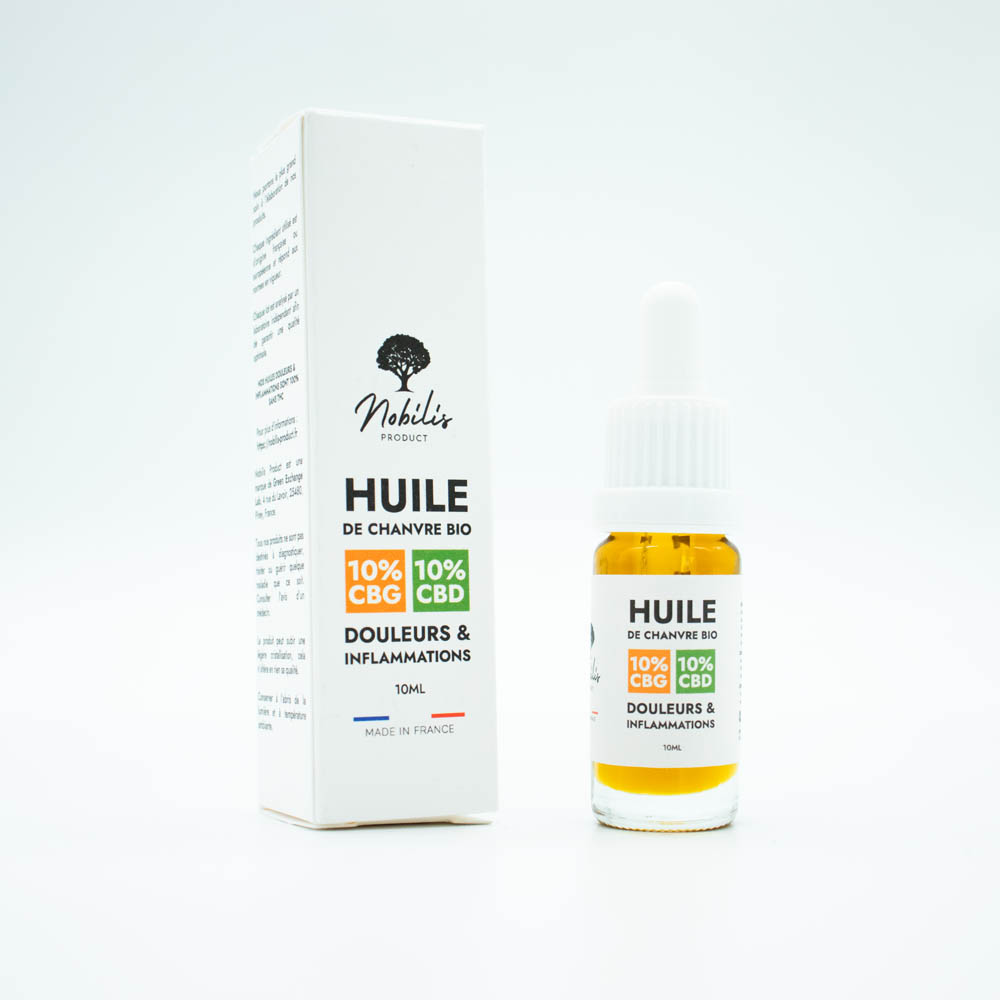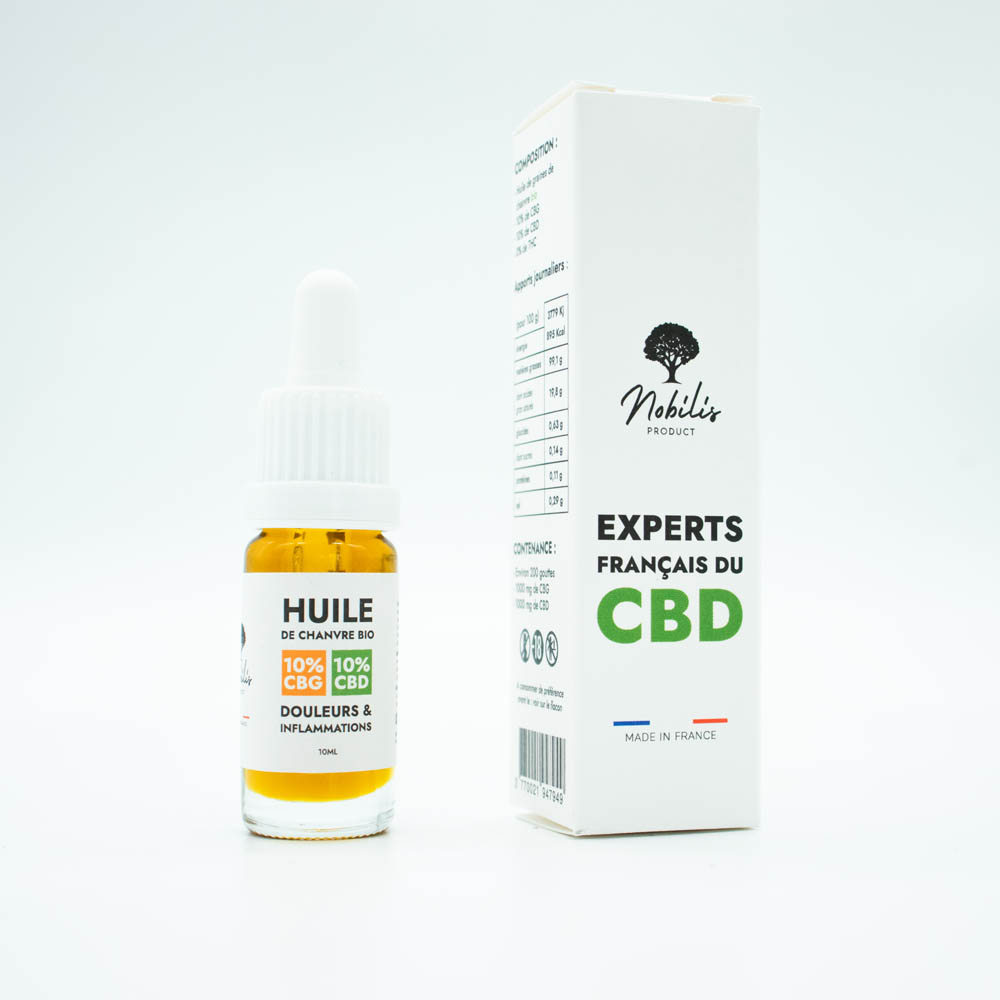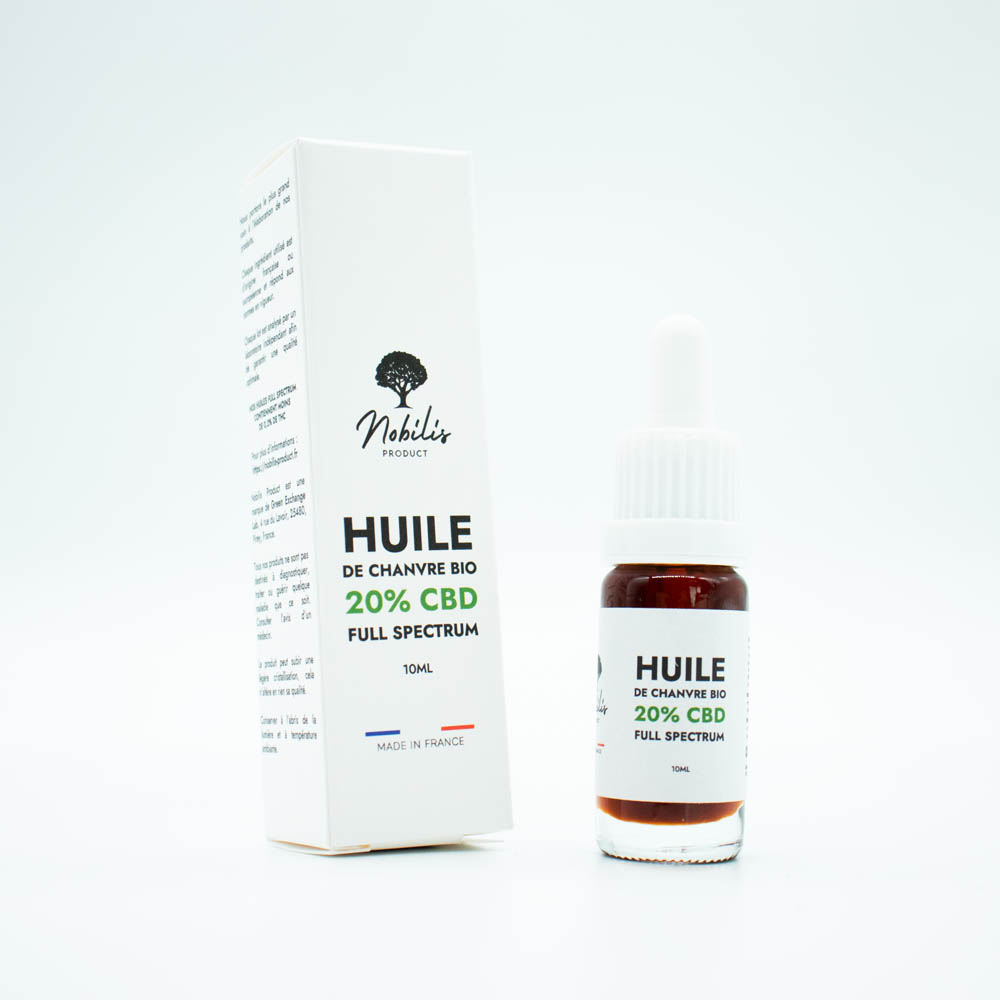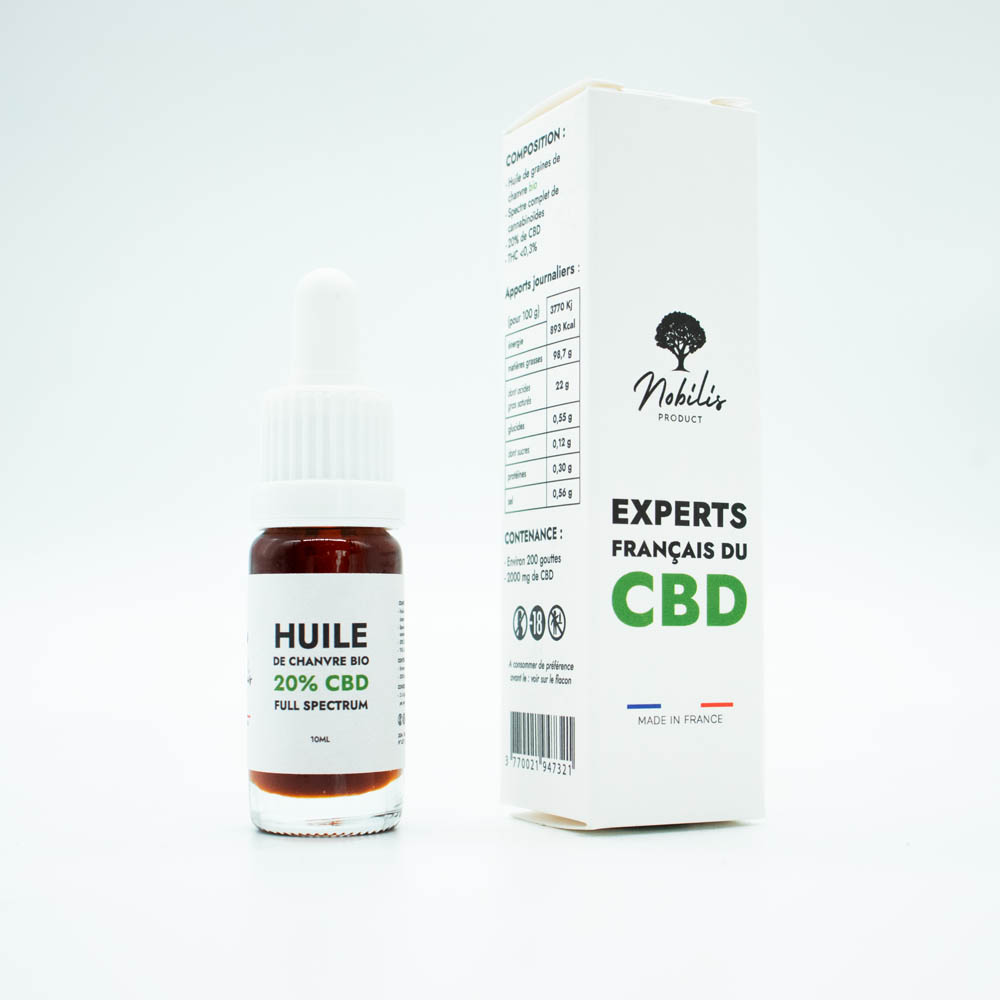CBD, a non-psychotropic cannabis extract, has attracted growing interest in recent years as a possible adjunct to cancer treatments.
In this article, we'll explore in depth what current science tells us about the use of CBD, why more and more patients and healthcare professionals are interested in this approach, and the various ways CBD can be used to improve the quality of life of people with cancer.
We'll also discuss the safety, efficacy and legality of using CBD in this context. What are the potential benefits? What precautions need to be taken? Here's an overview.
Table of contents
Cancer: definition, causes and traditional treatments
The result of the uncontrolled proliferation of defective cells in the body, cancer is a complex disease that can affect any organ, progress more or less rapidly, and whose chances of cure vary substantially from one patient to another.
How are cancer cells formed?
As we'll see a little later in our article, CBD is potentially capable of acting at several stages of disease development. For a better understanding of what follows, it is therefore important to recall the mechanism of cancer development.
The process is characterized by 5 key stages:
- Genetic mutation: an error occurs in the DNA. It can be caused by various external factors (UV exposure, tobacco, alcohol, etc.) or be genetic in origin (hereditary or spontaneous, with no apparent explanation);
- Proliferation: the life cycle of a cancer cell is abnormal, dividing uncontrollably until it forms a mass of tissue called a tumor. This may be a benign tumor, whose presence does not affect the functioning of the organism, nor does it have the capacity to spread;
- Metastasis: if the tumor in question is malignant, it may spread through the blood or lymphatic system to form other tumors affecting other organs;
- Angiogenesis: to survive and continue growing, cancer cells stimulate the growth of new blood vessels to supply themselves with nutrients;
- Cancer persistence: cancer cells are generally not detected by the immune system, which further encourages their development. What's more, over time, they are able to defend themselves against anti-cancer treatments.
How do anti-cancer drugs work?
Cancer treatment varies from patient to patient, depending on the organ affected, the stage of the disease and the patient's general state of health. But the most commonly used treatments are :
- Surgery, which is recommended when cancer is detected before it has metastasized, consists of removing the tumour;
- Chemotherapy, which uses a combination of drugs to destroy cancer cells or prevent them from dividing;
- Radiotherapy, in which ionizing radiation damages the DNA of cancer cells to destroy them or prevent them from dividing;
- And immunotherapy, which stimulates the immune system to help destroy cancer cells.
Anti-cancer treatments have several mechanisms of action. They can :
- Stop cell division;
- Inhibiting tumor growth;
- Induce cell death (apoptosis);
- Inhibit angiogenesis.
Despite their relative effectiveness, research into cancer treatments remains very active.
In fact, the cure rate depends enormously on the type of cancer (90% of testicular cancers are cured, compared with 0% of pancreatic cancers). In addition, these treatments have many serious side-effects, as the drugs' mechanisms of action also affect the patient's own healthy cells.
The potential anti-cancer mechanisms of CBD
A few years ago, the case of an octogenarian diagnosed with lung cancer whose CBD oil intake reduced the size of her tumour by 70% caused a buzz on the internet [1]. Several encouraging preclinical studies have now been added to this testimonial.
The endocannabinoid system and cancer
All animals (including humans) have an endocannabinoid system: a network of receptors distributed throughout the body, activated or inhibited either by cannabinoids (CBD, THC, etc.) or by endocannabinoids (neurotransmitters naturally synthesized by the body).
The role of the endocannabinoid system is to maintain our body in a state of equilibrium. In fact, its receptors are involved in regulating various physiological processes such as internal temperature, blood pH, blood sugar levels, etc.
Furthermore, it has been shown that the endocannabinoid system is involved in various key mechanisms in the development and proliferation of cancer cells [2] such as :
- System regulation
- immune ;
- Apoptosis;
- Angiogenesis.
The use of cannabinoids such as CBD could be a serious avenue for cancer treatment.
Anti-tumor properties of CBD
Cannabidiol (CBD), through its particular affinity with the endocannabinoid system, is potentially capable of acting on the mechanisms involved in cancer cell development mentioned in the previous paragraph [3].
In fact, CBD indirectly activates CB2-type receptors, which are involved in the control and regulation of cytokinesis in immune cells, thus contributing to anti-cancer factors linked to cell division, such as anti-proliferation.
Other studies in animal models show that CBD has pro-apoptotic properties, inhibiting the migration, adhesion and invasion of cancer cells [4].
CBD also has a high affinity for TRPV-type receptors, which are found in large numbers in certain tumour types. Studies suggest that activation of these receptors may have anti-cancer effects.
In summary, CBD is potentially capable of :
- Inducing apoptosis in cancer cells;
- Preventing the formation of metastases;
- And reduce the size of certain tumors.
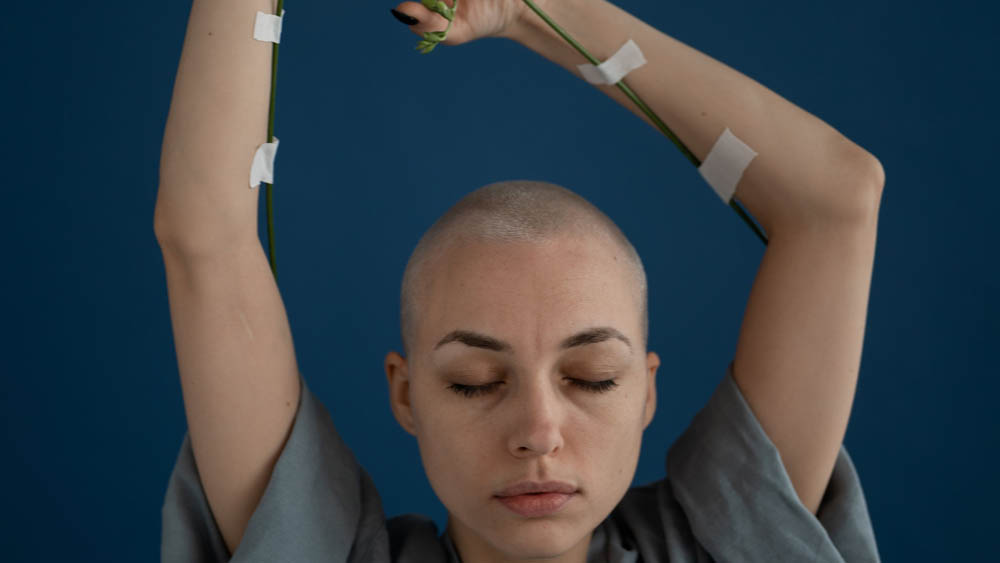
Types of cancer covered by research
One of the reasons why finding a cure for cancer is such a complicated task is that there are dozens and dozens of forms, each involving its own unique mechanisms.
As far as the use of CBD is concerned, its anti-cancer action has been studied in numerous cancers (lung, breast, prostate, but also colon, leukemia, brain...). In fact, a study carried out on 119 patients with different types of cancer revealed that daily intake of CBD slowed the spread of cancer cells in 92% of cases. [5]
Although further studies are needed, CBD and cannabinoids are one of the most serious leads in the search for cancer treatments. Not least because CBD is non-psychoactive and, above all, because it is capable of promoting the destruction of cancer cells without affecting healthy cells.
Here's a brief overview of the main studies conducted on the action of CBD on different types of cancer.
Lung cancer 🫁
We mentioned earlier the case of a lady who refused all conventional treatment and self-administered CBD oil, significantly reducing the size of her tumour (70%). Some studies suggest that CBD may actually induce apoptosis in lung cancer cells [5] ;
Breast cancer 🤱🏻
Some studies show that the anti-tumor effect of CBD is effective on human breast carcinoma (=tumor). Studies on this subject also underline the importance of further research into the potential use of CBD as an antineoplastic agent in the treatment of breast cancer[6].
Prostate cancer 👨🏻
CBD has been shown to induce apoptosis in prostate cancer cells. Studies also suggest that CBD significantly reduces the vitality of cancerous strains. [7]
CBD as a palliative treatment for cancer
Cannabis is popular among people diagnosed with cancer, particularly for treating the side effects caused by their treatment. A survey of 926 patients at the Fred Hutchinson Cancer Research Center (Seattle) revealed that over 90% of patients who use it consider that cannabis helps improve their quality of life [8].
It's important to point out, however, that the cannabis discussed in this study contains a significant dose of THC. In France, authorized strains synthesize no more than 0.3%. However, as we shall see, several studies suggest that the use of CBD alone could help reduce many of the symptoms associated with traditional anti-cancer treatments.
Effects on chronic pain
Chemotherapy can affect peripheral nerves, leading to peripheral neuropathy, a condition characterized by pain, tingling and numbness in the hands and feet.
Radiotherapy, meanwhile, can also damage healthy tissue, causing chronic pain in the treated area.
In addition, some cancer treatments can trigger an inflammatory reaction in the body, causing severe pain.
In this sense, taking CBD could prove beneficial. Indeed, its analgesic properties are now well known. As is its beneficial action on neuropathic pain. In fact, Sativex, formulated with CBD, is prescribed to multiple sclerosis sufferers to reduce the pain associated with the disease.
At the same time, numerous studies have investigated the pain-relieving properties of CBD in people suffering from fibromyalgia and rheumatism, with very encouraging results.
Effects on nausea and vomiting
Chemotherapy frequently causes nausea and vomiting, a side effect often referred to as chemotherapy-induced nausea and vomiting (CINV).
The anti-vomiting effects associated with cannabis consumption are largely attributable to THC. THC inhibits the action of certain receptors in the brain (CB1) and regulates the synthesis of GABA acids, which are responsible for triggering nausea and vomiting.
However, some studies suggest that CBD use may also help reduce nausea thanks to its regulatory action on serotonin levels, a hormone involved in many physiological processes, including the sensation of feeling nauseous.
In this sense, choosing a full spectrum product, i.e. one that contains THC in low doses, can be a wise choice. We'll come back to this point a little later in our article.
Effect on mental well-being
The emotional impact of illness can be overwhelming, leading to depression, anxiety and sleep disorders. And yet, a person's morale and quality of life can substantially influence their chances of recovery.
In this respect, CBD intake could prove beneficial [9], since its regulating action on serotonin synthesis makes it possible to :
- Fight depression and stabilize emotional state;
- Improve sleep quality and boost energy levels;
- And finally combat anxiety by inducing a state of serenity and tranquility.
How to use CBD against cancer?
In view of its potential anti-cancer properties, combined with its beneficial action on the side effects caused by traditional treatments, the use of CBD is very tempting. It should be remembered, however, that CBD is not a miracle cure, and should only be taken under the supervision of a healthcare professional.
Special precautions
CBD is a non-psychoactive molecule, with no serious side effects and completely harmless up to 1500 mg/day.
However, if you are undergoing anti-cancer treatment, it is formally inadvisable to take CBD without consulting your doctor. This is because the CBD molecule is metabolized by the liver, which can lead to drug interactions that diminish the effect of certain anti-cancer active ingredients or increase the risk of toxicity. [11]
In fact, the cancer patients taking part in the national experiment on the viability of using therapeutic cannabis are not undergoing any other anti-cancer treatment. They are also closely monitored by medical professionals.
Recommended type of CBD
Although CBD is responsible for many of the anti-cancer properties, numerous studies suggest that the active compounds in cannabis act synergistically to enhance efficacy. This is known as the entourage effect.
That's why we recommend full spectrum CBD oil. It contains all the plant's cannabinoids, including THC, at less than 0.3%. While this percentage is too low to produce any intoxicating effect, it may be enough to potentiate CBD's anti-nausea and anti-vomiting effects. Indeed, THC is known for its positive effects on the gastric system, as well as for stimulating the appetite.
We also strongly recommend choosing a CBD oil that is not only organically grown, but also comes with laboratory analysis results guaranteeing the absence of any harmful substances, as well as the concentration of each cannabinoid.
-
THC-free 10% CBG and 10% CBD "Pain and Inflammation" oil
Rating 5.00 out of 529,90 €10% CBG + 10% CBD oil for lasting relief of chronic pain and inflammation. A synergy of cannabinoids to soothe the body, without addiction or psychotropic effects.
✔️ THC-free, non-addictive
🇫🇷 Made in France with French ingredients in our laboratory
🧪 Total traceability: We extract the active ingredients from Hemp ourselves.
💧 10 ml bottle with dosing pipette - around 250 drops for easy, precise use -
CBD Oil 20% Full Spectrum - Nobilis Product
Rating 5.00 out of 529,90 €Our Full Spectrum 20% CBD oil is a concentrate of nature and French know-how. Derived from hemp grown without GMOs or additives, it contains twice the concentration of cannabidiol as our 10% formula, while retaining all the cannabinoids, terpenes and flavonoids naturally present in the plant.
Thanks to theenhanced entourage effect, this oil promotes a deeper action on stress, body tension and sleep quality.
Its 10 ml format with pipette allows precise, easy dosing, even at high concentrations.
This oil is :
-
🇫🇷 Produced in our French laboratory, from hemp extraction to bottling, with full traceability
-
🌿 Réalisée à partir de crude de CBD, pour conserver toute la richesse moléculaire du chanvre : CBD, CBG, CBN, THC < 0,3 %, flavonoïdes, terpènes
-
✅ Analyzed with every batch by an independent laboratory, to guarantee consistent, uncompromising quality
-
Recommended dosage
As CBD-based products are not considered medicines in France, there is no recommended dosage. What's more, dosage depends on a whole host of factors, including weight, age, the intensity of the symptoms to be treated and the sensitivity of the endocannabinoid system.
However, the question of dosage is very important. CBD is a capricious molecule whose efficacy follows an inverted U-shaped curve. That's why we recommend a gradual approach: start with a low dose (3 to 5 drops a day) of a low-concentration oil (5 to 10%) and increase every 5 to 7 days by a few drops until you get the results you're looking for.
In any case, we remind you of the importance of consulting a doctor before taking CBD for cancer.

